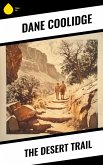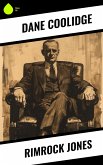In "The Desert Valley," Jackson Gregory intricately weaves a narrative that explores the harsh beauties and moral complexities of life in the American West. Set against the backdrop of a parched landscape, the novel utilizes vivid imagery and a lyrical prose style that captures both the stark realities and the emotional depths of its characters. Gregory's masterful use of dialogue and tension situates the work within the early 20th century literary movement that sought to blend regionalism with universal themes of love, betrayal, and redemption, drawing readers into a world defined by both physical and psychological landscapes. Jackson Gregory, an acclaimed American author known for his contributions to Western literature, channels his own experiences and observations of the early 1900s into this work. His background in the West, combined with his keen understanding of its unique social dynamics, informs his character development and thematic explorations. Gregory's own life, intertwined with the rhythms of the land and its people, reflects a deep-seated admiration for the resilience of those who inhabit this rugged terrain, prompting him to create a narrative that resonates with authenticity. "The Desert Valley" is an essential read for enthusiasts of Western literature and anyone interested in stories that delve into the human spirit's endurance amid adversity. Gregory's compelling storytelling and deep characterizations ensure that readers will not only engage with the narrative but also reflect on larger themes of identity and belonging. This novel is a profound exploration of what it means to find hope and connection in the most desolate of places.
Dieser Download kann aus rechtlichen Gründen nur mit Rechnungsadresse in A, B, BG, CY, CZ, D, DK, EW, E, FIN, F, GR, HR, H, IRL, I, LT, L, LR, M, NL, PL, P, R, S, SLO, SK ausgeliefert werden.









